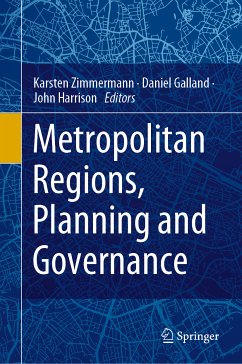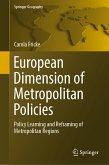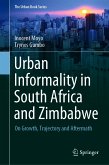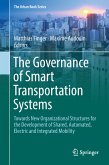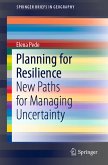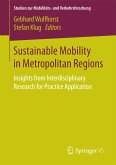The relentless pace of urban change in globalization poses fundamental questions about how to best plan and govern 21st-century metropolitan regions. The problem for metropolitan regions-especially for those with policy and decision-making responsibilities-is a growing recognition that these spaces are typically reliant on inadequate urban-economic infrastructure and fragmented planning and governance arrangements. Moreover, as the demand for more 'appropriate'-i.e., more flexible, networked and smart-forms of planning and governance increases, new expressions of territorial cooperation and conflict are emerging around issues and agendas of (de-)growth, infrastructure expansion, and the collective provision of services.
Dieser Download kann aus rechtlichen Gründen nur mit Rechnungsadresse in A, B, BG, CY, CZ, D, DK, EW, E, FIN, F, GR, HR, H, IRL, I, LT, L, LR, M, NL, PL, P, R, S, SLO, SK ausgeliefert werden.
"This book provides overviews on planning and governance in metropolitan regions from various perspectives, making it a depository of presented cases that reflect a panoply of approaches. The book is an important reference for students and researchers in planning, planners and policy makers interested in engaging with the topic to have the wider picture." (Christine Mady, Urban Research & Practice, April 27, 2020)

